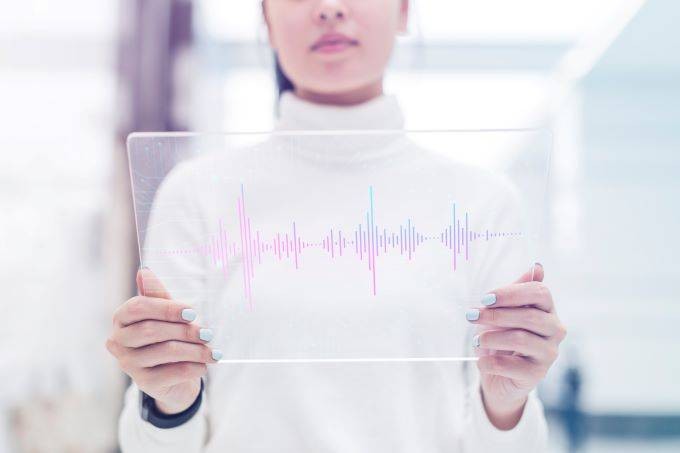
A sudden increase or decrease in heart rate can cause discomfort and may even lead one to suspect heart disease, resulting in feelings of panic. However, this discomfort is medically referred to as 'palpitations', a common phenomenon. Continue reading below to gain insights into the symptoms, causes, and the diagnostic and treatment approaches for palpitations.
What is palpitations?
Palpitations refer to an abnormal awareness of the heartbeat, which may manifest as a heart rate that is too fast, too slow, fluctuating rapidly, or suddenly becoming stronger. These unusual sensations of the heartbeat can often lead to discomfort. Although palpitations may sound serious, in most cases, if there are no significant changes in heart rate, mild palpitations typically do not warrant excessive concern.
Symptoms of palpitations
In addition to changes in the heartbeat, palpitations may be accompanied by the following symptoms:
- Chest tightness
- Dyspnea
- Dizziness Limb weakness
- Sweating
- Anxiety
In general, palpitations do not lead to other complications. However, if the palpitations are associated with severe heart disease, they can potentially lead to complications such as stroke,congestive heart failure, cardiac arrest, and sudden cardiac death.
Common Causes of Palpitations
The following are common causes of palpitations:
Lifestyle Factors Lifestyle factors are one of the primary contributors to palpitations among urbanites. Poor lifestyle choices, such as late-night activities, excessive stress from work or academic pressure, inadequate physical exercise, and unhealthy dietary habits, can adversely affect cardiac function. Consequently, these lifestyle habits are significant contributors to the occurrence of palpitations.
In addition to those lifestyle habits, substances commonly consumed in daily life can also induce palpitations. These include caffeinated beverages such as coffee, tea, and cola. Beyond caffeine, the consumption of nicotine and alcohol can also contribute to the experience of palpitations.
Emotional or Psychological Factors
Emotional fluctuations can easily alter the heart rate, particularly when emotions swing dramatically, which can lead to a rapid increase in heart rate. Consequently, if symptoms of palpitations arise during periods of anxiety, panic, or other intense emotions, it is highly likely that these palpitations are triggered by emotional changes.
Heart-Related Conditions
Individuals with heart-related diseases may also experience abnormal heart rhythms. Therefore, if palpitations persist, it could indicate the presence of arrhythmia, valvular heart disease, heart failure, or other cardiovascular conditions. It is advisable to seek medical attention promptly for a comprehensive evaluation to determine the specific type of heart disease.
How to Differentiate Between Palpitations and Arrhythmia
Palpitations are a type of arrhythmia, but they are not synonymous with it. While palpitations can be a sensation associated with arrhythmia, they do not necessarily indicate an abnormal heart rhythm. To determine whether abnormal heartbeats are caused by palpitations or arrhythmia, a detailed electrocardiogram (ECG) examination is recommended.
Diagnosis of Palpitations
When diagnosing a potential palpitation issue, a doctor will first utilize a stethoscope to listen to the heart's rhythm. Following this, they will inquire about the patient's medical history to determine if any previous illnesses or factors may trigger palpitations. Subsequently, the doctor will employ instruments such as an electrocardiogram (ECG) and a stress test to observe the heart's activity over a period of time, assessing for any significant palpitation concerns.
Treatment of Palpitations
If the diagnosis confirms that the palpitations are due to a cardiac issue, the doctor will identify the specific heart problems the patient is experiencing. Appropriate medication or surgical interventions will be administered accordingly. If the cause of the palpitations is attributed to other factors, such as excessive caffeine consumption or high work-related stress, the doctor may recommend lifestyle changes to reduce the frequency of palpitations.
Should the palpitations persist, it is advisable to seek comprehensive cardiac evaluation at a hospital. A doctor can then accurately diagnose the underlying causes of the palpitations and initiate timely treatment to avoid missing the optimal window for recovery. Hong Kong Adventist Hospital’s cardiology department offers comprehensive cardiac services, including assessment, treatment, and rehabilitation. They conduct thorough examinations for individuals with suspected heart issues and tailor the most appropriate treatment plans for various conditions. Click here for more information.
Preventive Measures for Palpitations
In most cases, palpitations arise from issues related to lifestyle habits, stress, and emotions. The following methods can effectively help prevent the occurrence of palpitations:
- Maintain a consistent sleep schedule
- Develop a regular exercise routine
- Adopt a balanced diet
- Learn appropriate stress-relief techniques
- Limit the consumption of caffeine-containing beverages such as coffee and tea
- Quit smoking
- Undergo regular health check-ups to reduce the risk of heart disease
Emergency Management of Palpitations
If you experience a sudden increase in heart rate or irregular heartbeat, you can try the following methods to restore normal heart rhythm: First, take a deep breath and then exhale slowly to help regulate the heart rate through steady breathing. If the changes in heart rhythm are triggered by stress, try to distance yourself from the source of stress and seek a suitable environment to rest in order to readjust your heart rate.


















